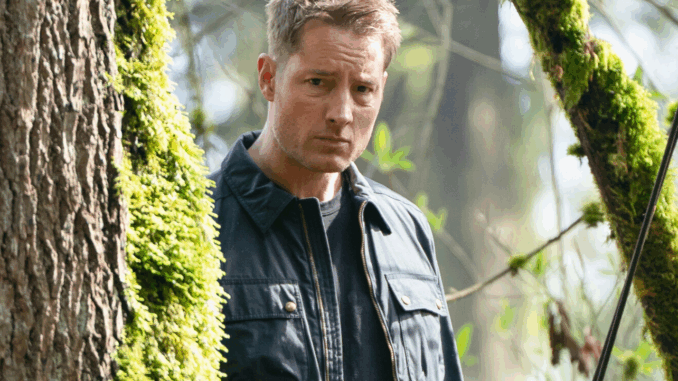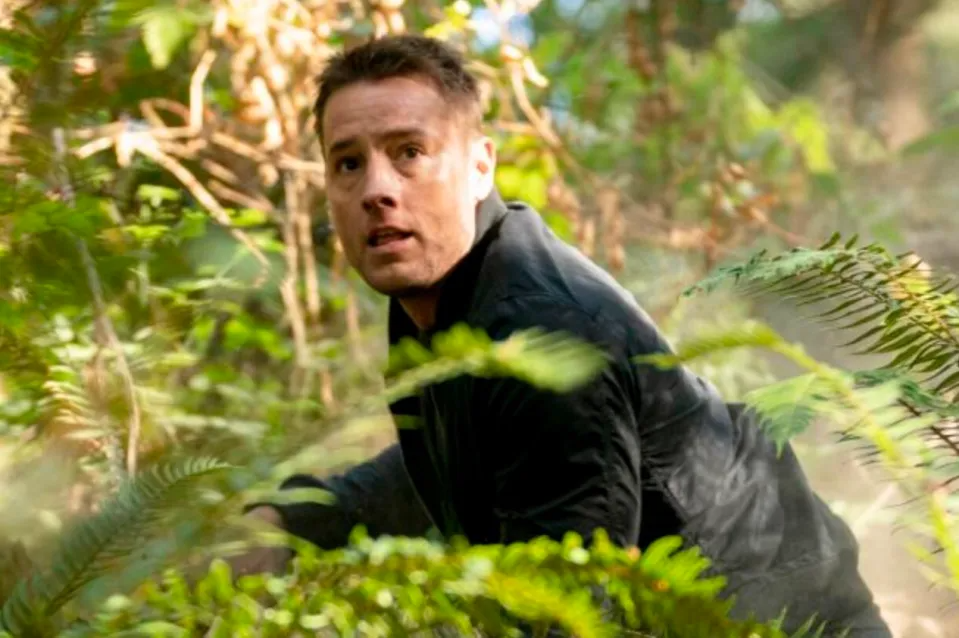
At first glance, Tracker seems like a show built on hard facts: probability scores, digital forensics, GPS tracking. But beneath the tech-savvy, data-driven exterior lies a quieter tension—between logic and instinct, between what can be measured and what must be felt. In Colter Shaw’s world, success isn’t just about skill. It’s about trusting a gut feeling, reading emotions, and sometimes following a hunch instead of a lead. This article explores how Tracker portrays the fragile balance between intellect and intuition—and why that tension is key to the show’s depth and emotional power.
Colter Shaw: The Rational Empath
Colter Shaw is introduced as a professional tracker who uses game theory, behavioral analysis, and pattern recognition. He calculates odds and makes decisions based on risk, efficiency, and rational outcomes. But that’s only part of the picture.
In nearly every episode, we see Colter deviating from the expected path—not because the data tells him to, but because something feels off. Whether it’s the way a suspect lies, the silence in a family’s eyes, or an instinctual suspicion, Colter often listens to something beyond reason.
This makes him a unique protagonist—not a cold algorithmic operator, but a man who blends science with a deep emotional sensitivity.
Data Isn’t Everything: The Limits of Technology
Tracker respects technology but never worships it. Shaw uses everything from satellite imaging to social media mining, but time and again, the show reminds us: data can’t tell you everything.
In one standout episode, Colter follows a digital trail that leads to a dead end, while a passing comment from a child—a gut instinct he almost dismisses—cracks the case open. These moments reinforce that human intuition, shaped by experience and empathy, is irreplaceable.
Even in an era of artificial intelligence and surveillance, Tracker insists that real insight comes from human perception.
Female Intuition: Supporting Characters as Foils

Colter isn’t the only one wrestling with instinct. Female characters—ranging from local sheriffs to victims’ relatives—often play crucial roles in demonstrating the value of intuition.
In several episodes, women close to the missing person voice concerns or insights that don’t show up in the evidence. Colter listens, respects, and integrates their input. It’s not just good tracking—it’s a collaborative intelligence that values emotion as much as logic.
This dynamic helps challenge stereotypes in procedural dramas and showcases Tracker’s commitment to complex, emotionally aware storytelling.
Intuition as a Learned Skill
Some might see intuition as mysterious or magical. But Tracker treats it as a refined tool, honed over time through observation, failures, and human connection. Colter’s instincts aren’t lucky guesses—they’re the result of years of fieldwork, trauma, and pattern recognition.
The show suggests that intuition is a form of emotional intelligence. It’s what lets Colter read a suspect’s body language or notice when someone’s too eager to help. His ability to “feel” the truth isn’t supernatural—it’s deeply human.
Faith in the Process: Trusting the Unknown
Faith plays an unexpected role in Tracker. Not religious faith, but the faith required to follow an uncertain path. Sometimes Colter acts without proof, guided by experience and hope. These moments mirror what victims’ families feel—waiting, believing, despite the odds.
Episodes that emphasize belief over proof—where Colter takes a leap because something “feels right”—are among the most emotionally resonant. They show that tracking isn’t just about solving puzzles, but about trusting people, even when they’re flawed.
The Cost of Intuition
Relying on instinct comes at a price. Colter sometimes follows the wrong trail or misjudges a situation. The show doesn’t shy away from this. Intuition can lead to blind spots, especially when emotion clouds judgment.
These failures ground the character, reminding viewers that being intuitive doesn’t mean being infallible. It means being open to error, but willing to keep learning.
A World That Doesn’t Always Make Sense
In a chaotic world where people vanish, motives twist, and evidence misleads, Tracker argues that some truths can’t be graphed. They must be felt, sensed, or guessed. Colter’s process reflects the real human condition: living with uncertainty, acting without guarantees.
That’s what makes the show so gripping. It doesn’t offer neat solutions. Instead, it leans into the ambiguity—and shows that sometimes, the best way forward is to trust your gut.
Conclusion
Tracker may be a show about finding missing persons, but what it really uncovers is the subtle dance between logic and intuition. In Colter Shaw, we meet a man who calculates risks yet still listens to his instincts. In every case, the real success isn’t just in finding someone—it’s in listening, observing, and feeling the path forward.
As the series continues, Tracker challenges viewers to reflect on their own instincts. Are we paying attention to what’s beyond the numbers? Are we trusting our inner compass? In a world that prizes data, Tracker reminds us: the heart still knows the way.
